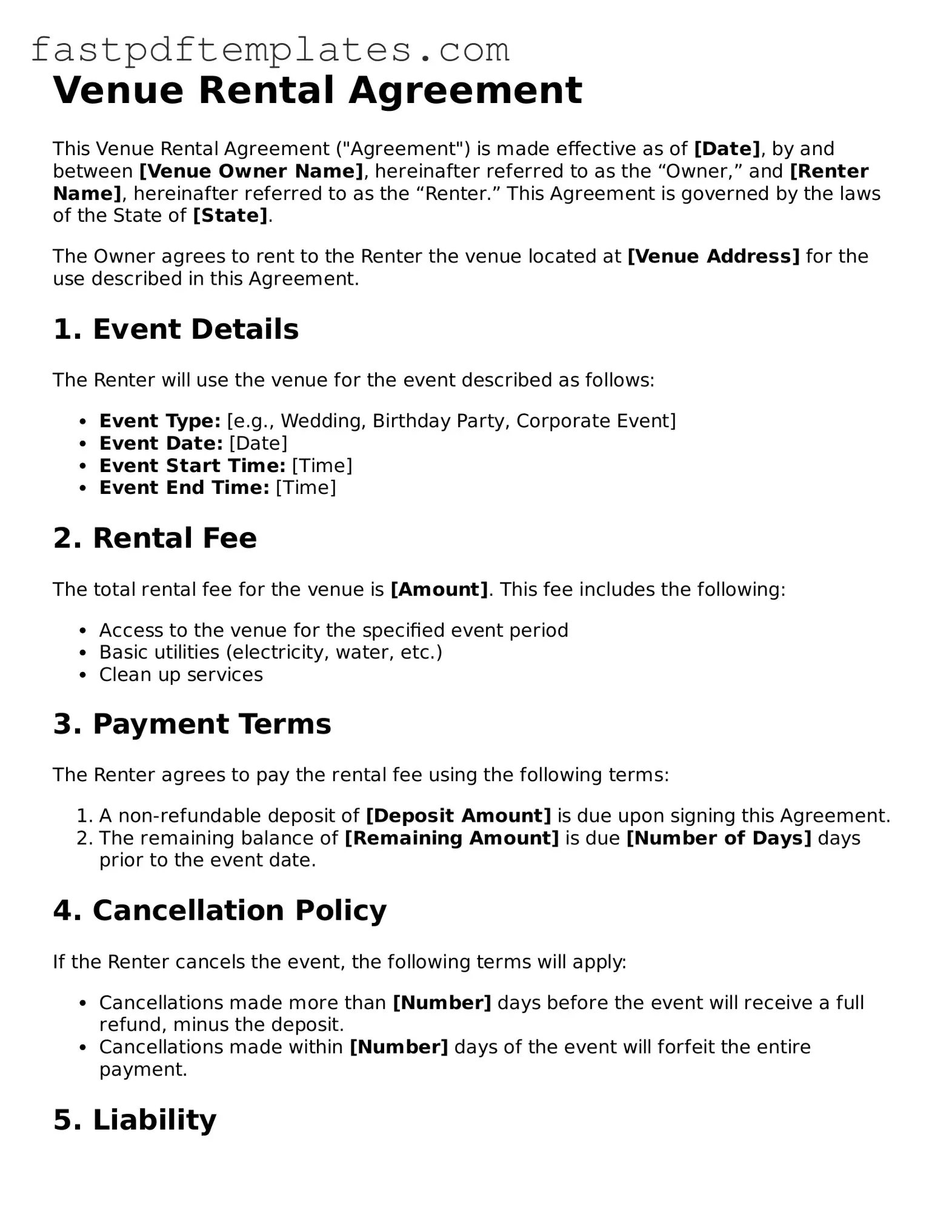A Facility Use Agreement is similar to a Venue Rental Agreement in that it outlines the terms under which a facility can be used for events or activities. Both documents specify the duration of use, fees, and responsibilities of the parties involved. While a Venue Rental Agreement typically focuses on specific venues for events, a Facility Use Agreement may cover a broader range of facilities, including parks, gyms, or community centers. This document ensures that both the facility owner and the user have a clear understanding of what is permitted and what is expected during the usage period.
An Event Contract serves a similar purpose to a Venue Rental Agreement by detailing the arrangements for hosting an event. It includes information about the event date, time, location, and the services provided. Like the Venue Rental Agreement, it often includes clauses related to cancellation policies and liability. However, an Event Contract may also encompass additional services such as catering, entertainment, and equipment rental, making it more comprehensive in terms of event planning.
A Catering Agreement is another document that shares similarities with a Venue Rental Agreement. While the latter focuses on the space being rented, a Catering Agreement specifically outlines the terms for food and beverage services at an event. Both documents typically include details about pricing, service times, and the responsibilities of each party. When an event is held at a rented venue, having both agreements ensures that all aspects of the event are coordinated effectively.
A Lease Agreement can also be compared to a Venue Rental Agreement, particularly when the venue is being rented for an extended period. While a Venue Rental Agreement is often for short-term events, a Lease Agreement covers longer-term arrangements, such as renting a space for months or years. Both documents outline terms related to payment, maintenance responsibilities, and the rights of both the landlord and the tenant, ensuring a mutual understanding of expectations.
A Memorandum of Understanding (MOU) may resemble a Venue Rental Agreement in that it establishes a mutual agreement between parties. While an MOU is generally less formal and not legally binding, it can outline the intentions and expectations of both parties regarding the use of a venue. This document can serve as a preliminary step before finalizing a more formal Venue Rental Agreement, helping to clarify roles and responsibilities before committing to a contract.
A Performance Agreement is similar in nature to a Venue Rental Agreement when it comes to hosting live performances or events. This document outlines the terms under which performers are engaged, including payment, performance times, and venue specifications. Both agreements ensure that all parties are aware of their obligations and rights, promoting a smooth and successful event. The Performance Agreement may also include provisions for technical requirements, which are often critical for live shows.
Finally, a Vendor Agreement can be likened to a Venue Rental Agreement, especially when vendors are involved in providing services at an event. Both documents clarify the roles and responsibilities of the parties, including payment terms and service expectations. While the Venue Rental Agreement focuses on the space being used, the Vendor Agreement details the specific services provided by vendors, ensuring that all aspects of the event are well-coordinated and understood by everyone involved.

